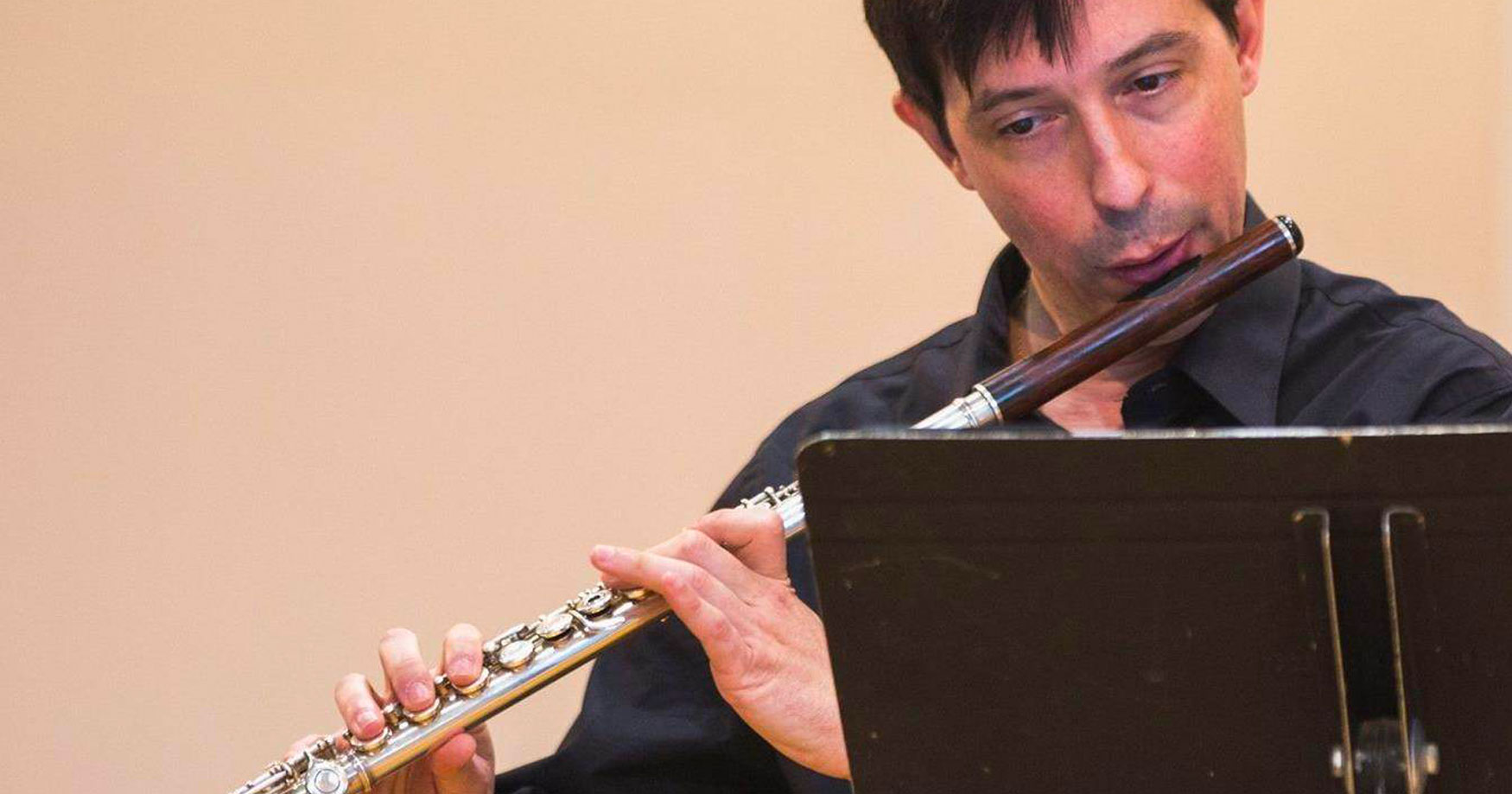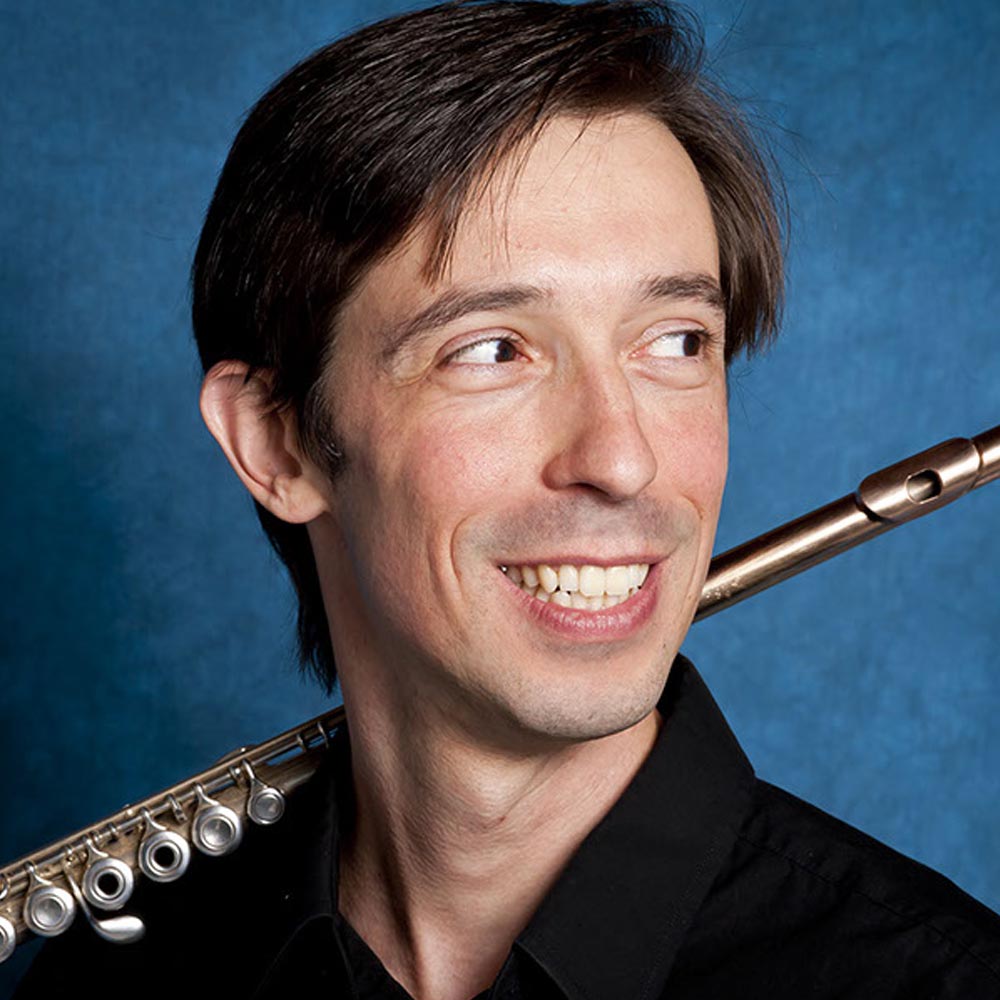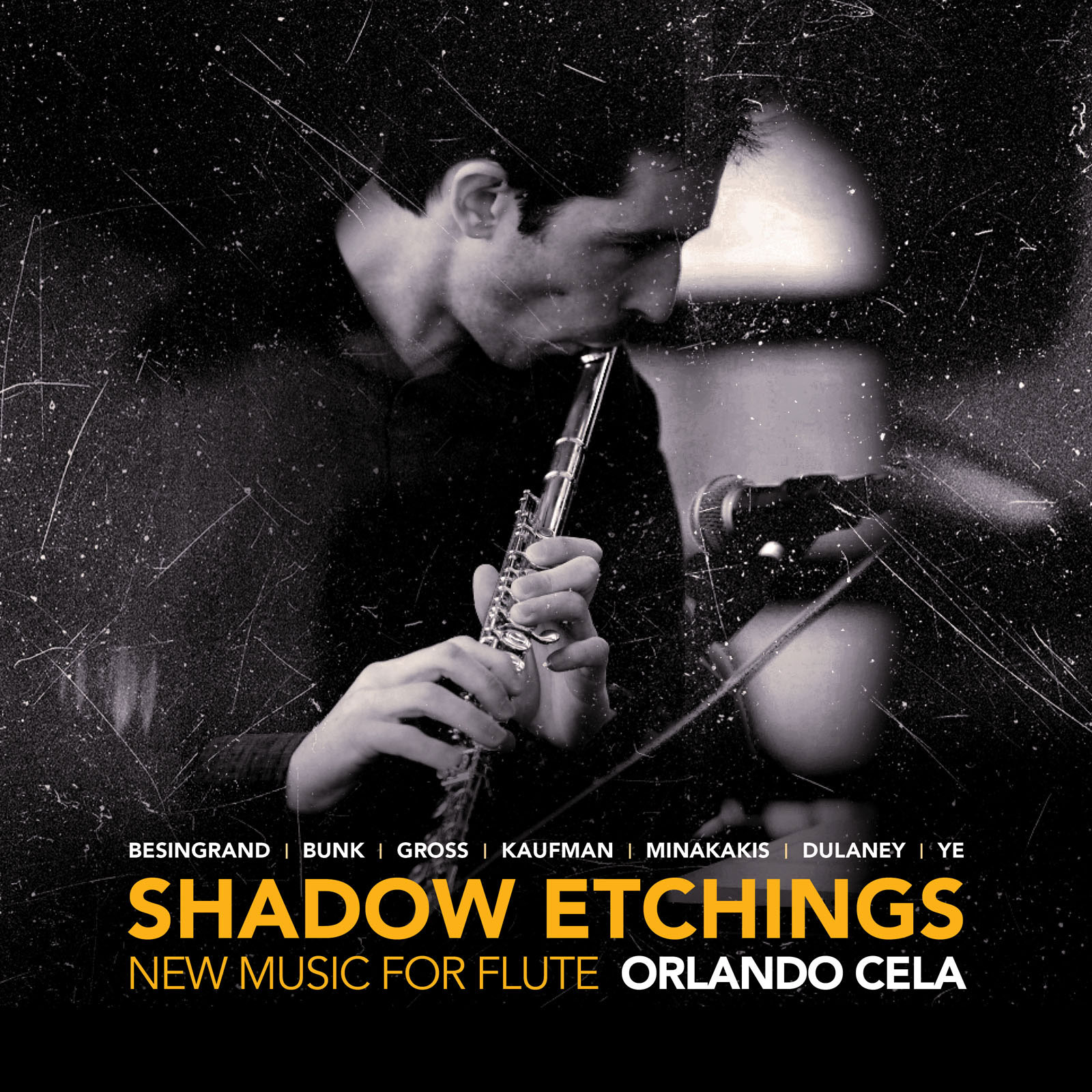
SHADOW ETCHINGS, the newest release from PARMA artist Orlando Cela, is an unapologetically unconventional album yet simultaneously accessible to even the untrained ear. Featuring creative new compositions for flute, Orlando’s simplistic yet virtuosic approach to the instrument is the driving force of the album.
Today, Orlando is our next featured artist in “The Inside Story,” a blog series exploring the inner workings and personalities of our artists. Read on to hear about Orlando and the wasp…
When did you realize you wanted to be a musician?
As with many musicians, one doesn’t choose music, music chooses you. First it was the student recitals, then a teacher heard me and asked me to play Bach’s Brandenburg Concerto No. 5 when I was 13 years old. Later on someone heard me and asked me to play the Bolling Suite for jazz flute, and so on, and so on. Before I knew it I was practicing much more than I was studying for school.
Who was your first favorite artist growing up?
My favorite artist growing up was Jean-Pierre Rampal. He definitely instilled in me the love for my instrument. I would listen to his recordings so often that I could play his renditions of Rameau and Vivaldi by memory. One day, my father brought home a recording of a festival celebrating the 50th anniversary of “Yerma,” the famous play by García Lorca. There was one work by José García Román, very avant-garde, that changed my views on music. I immediately wanted to learn about “that kind” of music. I was probably was 12 years old at the time.
What was your most unusual performance?
I was performing J. S. Bach’s Partita in A minor at SUNY, Fredonia. During the first movement, a wasp landed in my nose. I kept playing until it flew away. Nobody in the audience remembered if the performance was good or bad; they only remembered how luck I was I didn’t get stung!
If you could do any job in the world and make a living at it, what would it be?
I wouldn’t do any job except for music. Teaching, performing, arranging…anything I can that’s still music.
If you could escape to any part of the world, where would it be and why?
I would go to Vienna. From there, I would travel around Europe, studying the origins of the great masters of music, painting, poetry, etc. I dream of taking a sabbatical to study the music of the Flemish impressionist composers. I would also go to Finland and study Sibelius’ manuscripts or spend three months walking through El Prado, returning afterwards to the British Library to study the Vaughan-Williams manuscripts. There is so much to learn…
What is your favorite musical moment on the album?
My favorite musical moment in the album was recording “Winter Variations” with pianist Sivan Etedgee. Bunk’s work required a special kind of chamber music technique that moved more in silence than in sound, so Sivan and I connected through the sounds of the room: the creaks, the thuds, the heater, etc. It was almost as if we were telepathically producing the piece.
Was there a piece on your album that you found more difficult to record than the others?
The most difficult piece to record was “Skiagrafies” (Shadow Etchings). Minakakis is a master of his craft. His sonic landscapes are unusually magical, but require a degree of sensitivity beyond any other that I know of. It was also the most fulfilling piece to record, and that’s one of the reasons why the album is named after the work. The landscapes that Minakakis create are worth all the efforts of the world!
Is there a specific feeling you want listeners to tune into when hearing your work?
Each piece has very different feelings, so I hope the listener will not just listen to the sounds, but to the shape of each piece. Each work is a masterpiece of architecture-in-time. One must listen to each entire work, respectfully, to hear the stories of each composer. Ziteng Ye called his piece “Self-Portrait,” but each of these pieces is a piece of each composer’s soul. Dear listener: respectful, thorough listening, please.

Venezuelan born musician Orlando Cela is committed to engaging audiences with lively performances that open new worlds of experience. Known for his engaging performances using imaginative programming, Orlando has premiered in over 100 works, both as a flutist and as a conductor. In concert, Cela regularly offers short lively introductions to selected works, offering audiences entry points into unfamiliar works, to easily connect the music with other life experience.

